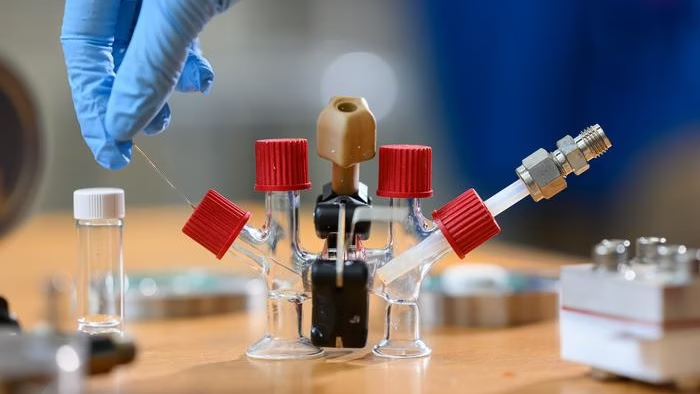From The Feinstein Institutes for Medical Research 21/08/23
In an unprecedented clinical trial, researchers from Northwell Health’s The Feinstein Institutes for Medical Research have implanted microchips into the brain of a man with paralysis.
They’ve also developed artificial intelligence (AI) algorithms to reconnect his brain to his body and spinal cord.
This innovative double neural bypass creates an electronic bridge that restores communication between his paralyzed body and brain, resulting in movement and sensations in his hand.

This breakthrough was achieved four months after a 15-hour open-brain surgery at North Shore University Hospital.
Chad Bouton, a professor at the Institute of Bioelectronic Medicine at Feinstein Institutes, highlighted the significance of this achievement.
He stated that this is the first instance where the brain, body, and spinal cord have been electronically linked to restore lasting movement and sensation in a paralyzed individual.
The trial participant’s arm and wrist movements improved outside the laboratory due to this technology.
Keith Thomas, a man who was paralyzed from the chest down after a diving accident, became the first human to benefit from this technology.

Following a 15-hour surgery and months of research, his brain was mapped to identify the areas responsible for arm movement and sensation in his hand.
Surgeons then implanted chips in these specific brain regions.
Through thought-driven therapy and AI algorithms, Mr. Thomas can now control his movements and feel sensations in his hand.
Over a hundred million people globally suffer from movement impairment or paralysis.
This trial aims to restore movement and sense of touch beyond the laboratory.
By connecting brain implants to a computer, Mr. Thomas’s intentions translate into actions through stimulation of his spinal cord and muscles.

This innovative approach has the potential to promote natural recovery as well.
Mr. Thomas’s arm strength has significantly improved since the study began, and he’s beginning to feel sensations in his forearm and wrist, even without the system on.
Unlike previous single neural bypass approaches, this technology offers movement and feeling restoration while promoting plasticity for long-lasting natural recovery.
The hope is that the brain, body, and spinal cord will reestablish communication, forging new pathways similar to how organs regenerate.
The Feinstein Institutes for Medical Research are pioneering bioelectronic medicine, blending molecular medicine, neuroscience, and biomedical engineering.
Their innovative approach offers new possibilities for those with paralysis and loss of sensation, potentially changing the landscape of medical treatment.
More info
The Feinstein Institutes for Medical Research



